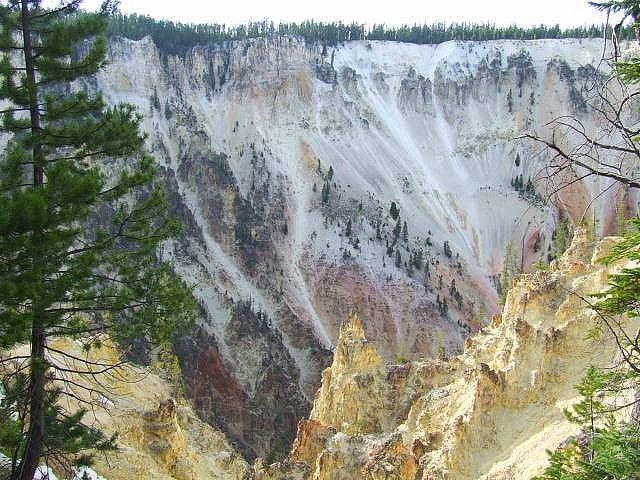
Just as national park visits go on the uptick, those packing their bags and trail mix for Yellowstone should be cautious. A gastrointestinal illness has left at least 200 park employees and visitors sick. Park officials are urging campers to be wary of personal hygiene so not to be affected by the virus.
The norovirus outbreak began June 7 when a group of tourists meandering Mammoth Hot Springs complained of stomach flu and other gastric problems, ABC News reported. About 50 park visitors and 150 employees complained of similar issues thereafter. The outbreak has also spread into neighboring Grand Teton. Preliminary investigations found that those afflicted had norovirus, better known as the stomach flu, which affects 21 million people annually, according to the Centers for Disease Control and Prevention.
Yellowstone National Park spokesman Al Mash said that visitors should take care to wash their hands thoroughly with soap and water before consuming food and to make sure food was well cleaned before consumption. He also advised against reliance on hand sanitizers.
"Don't rely on hand sanitizer. It's good for a while if you don't have access to water," Mash said. "But sanitizer is a poor second to washing your hands."
Yellowstone employees have since been scouring the park and disinfecting surfaces near where the incidents were first reported. The park sees around 200,000 visitors a day. Those who have contracted norovirus are advised to use bleach-based cleaners to wash surfaces, particularly toilets and sinks -- both surfaces that are commonly shared. Items like water bottles and towels should not be shared, the Examiner reported.
The outbreak comes a year after Yosemite National Park experienced an outbreak of its own. Last summer the hantavirus, usually contracted by contamination by mouse feces or urine, infected the park. The hantavirus is a pulmonary syndrome that can be deadly. Yosemite's outbreak left eight sick and three dead. Kathy Kupper, spokeswoman for the National Park Service, said that visitors concerned about health hazards should check the respective websites of parks they will be visiting prior to their arrival as all potential hazards and outbreaks will be listed.
"Always pay attention to the information. Don't just take the [informational pamphlet] and throw it in the glove box," she said.
© 2025 Latin Times. All rights reserved. Do not reproduce without permission.




